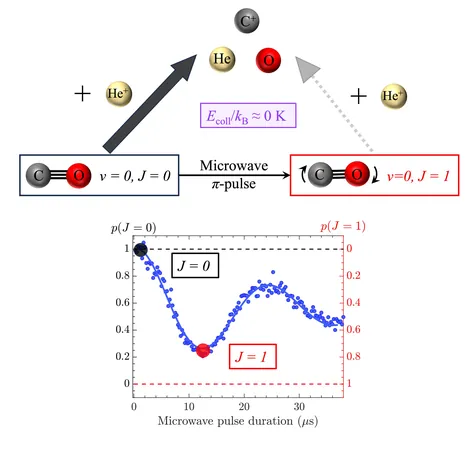
Experts Warn: Ignoring Early Heart Disease Could Lead to Millions of Unnecessary Deaths – Here’s What You Need to Know!
2025-04-01
Author: Daniel
Introduction
In a groundbreaking study published in The Lancet, health experts are making a clarion call for a significant transformation in how we address coronary artery disease, the leading form of heart disease worldwide. This urgent message underscores the importance of early prevention and detection, urging a proactive approach rather than the conventional late-stage interventions that we currently rely upon.
The Early Risks
Lead author Sarah Zaman, a prominent research fellow at the Westmead Applied Research Center at the University of Sydney, highlights a startling fact: the risk of developing heart disease begins earlier than many believe, even starting in utero. Children and adolescents are already showing signs of potential heart issues, yet these early markers often go unnoticed. “The misconception persists that heart disease is solely an ailment of older age. In reality, the seeds of this silent killer are sown much earlier,” warns Zaman. This oversight can result in a tragic missed opportunity to prevent severe complications such as heart attacks and strokes.
The Global Call for Change
The study comes from a global commission comprised of over 20 renowned medical professionals hailing from various countries including Australia, China, Britain, Thailand, the United States, and Saudi Arabia. These experts are calling for increased investment in innovative diagnostic tools, like advanced CT scans, capable of detecting plaque buildup in arteries before acute symptoms manifest.
Current Treatment Limitations
Currently, the majority of heart disease treatments focus on advanced stages with invasive procedures like stents. Experts are sounding the alarm that this reactive model ignores a crucial window for prevention. Alarmingly, the study projects that coronary artery disease is on track to claim approximately 10.5 million lives globally by the year 2050.
The Prevention Potential
In a silver lining, the authors suggest that addressing lifestyle choices could prevent up to 80 percent of heart disease cases. By actively combating risk factors such as smoking, unhealthy diets, and a sedentary lifestyle, it’s estimated that around 8.7 million lives could be saved each year.
Expert Opinions
Prof. Will Parsonage from the Australian Center for Health Services Innovation at Queensland University of Technology echoes the study's sentiments, emphasizing the pressing need for a renewed focus on preventive strategies and early diagnostic measures, particularly in light of the increasing burden on healthcare systems globally.
Adding to the discourse, Monash University's Prof. Stephen Nicholls advocates for a paradigm shift: “To effectively combat heart disease, we must redefine our approach. Viewing it as a lifelong affliction, rather than merely a concern of mid to late life, enables us to intervene sooner and, ultimately, salvage lives.”
Conclusion
As the fight against heart disease enters a new chapter, it’s clear that a proactive stance could save countless lives. The question remains: Are we ready to embrace this revolutionary approach to health?


 Brasil (PT)
Brasil (PT)
 Canada (EN)
Canada (EN)
 Chile (ES)
Chile (ES)
 Česko (CS)
Česko (CS)
 대한민국 (KO)
대한민국 (KO)
 España (ES)
España (ES)
 France (FR)
France (FR)
 Hong Kong (EN)
Hong Kong (EN)
 Italia (IT)
Italia (IT)
 日本 (JA)
日本 (JA)
 Magyarország (HU)
Magyarország (HU)
 Norge (NO)
Norge (NO)
 Polska (PL)
Polska (PL)
 Schweiz (DE)
Schweiz (DE)
 Singapore (EN)
Singapore (EN)
 Sverige (SV)
Sverige (SV)
 Suomi (FI)
Suomi (FI)
 Türkiye (TR)
Türkiye (TR)
 الإمارات العربية المتحدة (AR)
الإمارات العربية المتحدة (AR)